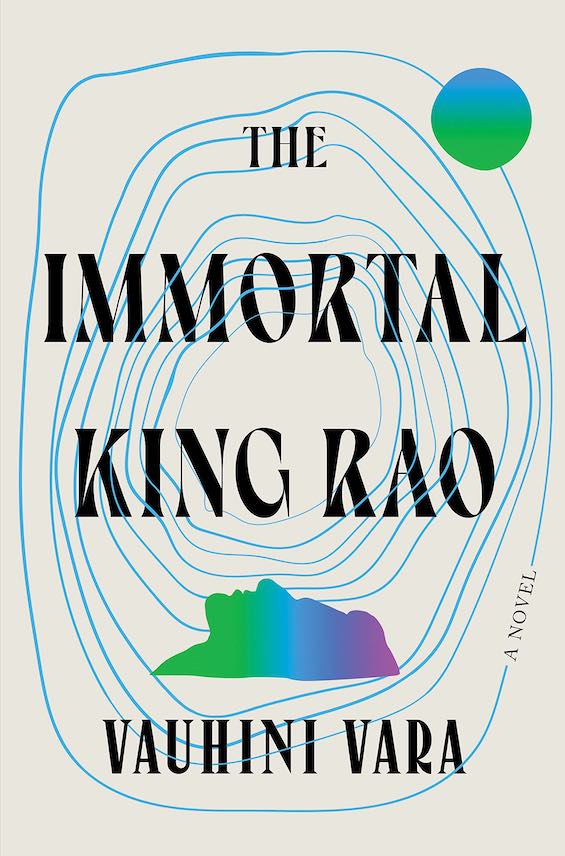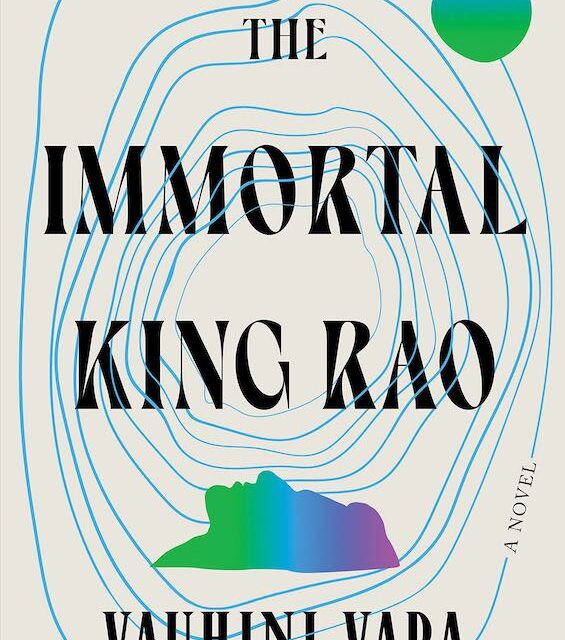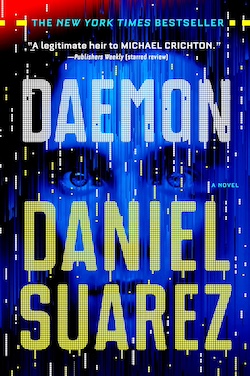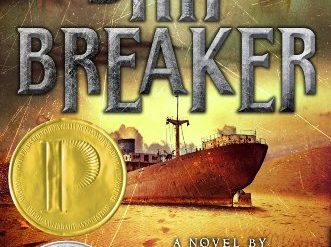
In her impressive debut novel, The Immortal King Rao, Canadian-American journalist Vauhini Vara probes the heart of the capitalist system with a cold-eyed look at its central premise, the cult of perpetual growth. The eponymous King Rao has “left this world as the most influential person ever to have lived. He entered it possessing not even a name.” And King Rao, by the way, is the name he received as a child in India, not a title. So begins this engrossing dystopian story.
Estimated reading time: 4 minutes
A unique take on a future society
The tale is set in the mid-22nd century, when Hothouse Earth has become a reality and society worldwide has been transformed into a corporatist state. An artificial intelligence called the Thinker allocates resources and protects people and property from harm. And a Board of Shareholders nominally governs a society in which everyone, rich or poor, is a Shareholder entitled to a slice of society’s profits. That share is tiny for most, enormous for a few. And the Shareholder concept, the Board, and all the rest was King Rao’s creation.
The Immortal King Rao by Vauhini Vara (2022) 378 pages ★★★★★

The remarkable man at the heart of this dystopian story
King Rao was born a Dalit, or Untouchable, in 1951 in what is today the state of Andhra Pradesh. His daughter, Athena, narrates the story of his childhood in India and his education at the country’s top engineering school and, later, in the United States. She recalls his research on the faculty of what appears to be the University of Washington, his marriage to the daughter of his thesis adviser, and the formation by the three of them of “one of the earliest computer companies” they had grown “into the most valuable corporation on earth.” It was called Coconut, recalling the groves of coconut trees that supported the village in which King Rao was born and raised.
Billions live the life King Rao designed, but there are dissenters
Through King Rao’s invention of the Coconut, an early microcomputer, and a flood of later innovations, he has come to be regarded as “the greatest innovator the world’s ever” known. “And then, at an age when most men are well into their retirement, he had rescued the planet from nation-state rule, which was bringing society to ruin, and engineered a calm and peaceful transition to Shareholder Government.” Nearly everyone now lives the life King Rao designed for them—but there are dissenters. Small numbers of “Exes” have opted out of Shareholder society and, through an agreement arranged by the Thinker, they have moved to islands around the world where they practice a working form of anarchism based on barter.
Something has gone badly wrong
But something has gone badly wrong in King Rao’s life, and in his daughter’s. Now more than 100 years of age and widely considered immortal, he lives in disgrace and isolation in a palatial home on a tiny island in Puget Sound. And Athena tells the tale from her cell in the Margaret Rao Detention Center, named for her late mother. There, she is serving a lifetime sentence for murder. How it all went south, and how the island-dwelling Exes relate to Shareholder society, is the heart of this tale.
About the author

Canadian-American journalist Vauhini Vara writes for the New Yorker. She was a reporter for the Wall Street Journal for almost ten years and has also written for several prominent national magazines. Vara received the O. Henry Prize for a short story in 2015. She lives in Colorado.
For related reading
This novel made my list of The best science fiction of 2022.
One of science fiction’s all-time greats also probed the impact of anarchism in practice, but from a very different perspective. See The Dispossessed (Ursula Le Guin explores anarchism and capitalism).
For more good reading, check out:
- The top 10 dystopian novels
- These novels won both Hugo and Nebula Awards
- The ultimate guide to the all-time best science fiction novels
- 10 top science fiction novels
- 10 new science fiction authors worth reading
And you can always find my most popular reviews, and the most recent ones, on the Home Page.


























